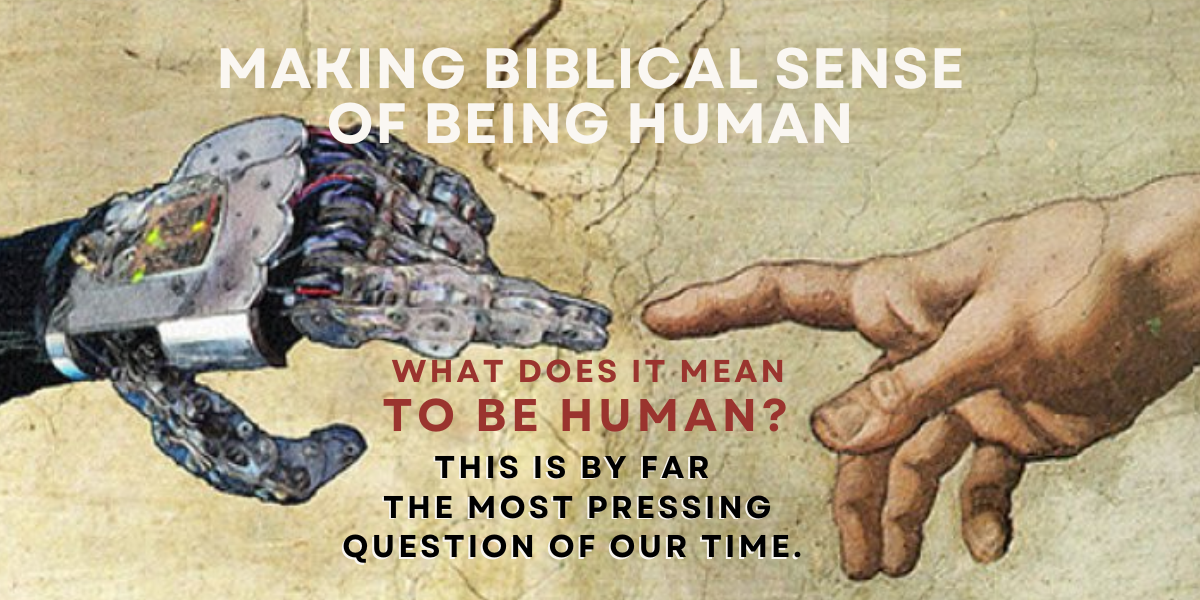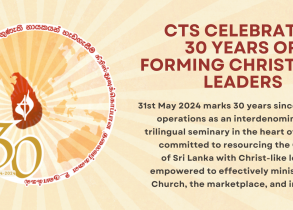Principal’s Message

Making Biblical Sense
of Being Human
What does it mean to be human? This is by far the most pressing question of our time.
The world is being radically reshaped by the idea that ‘psychological categories and an inward focus are the hallmarks of being a modern person’. It has brought about the novel phenomenon of ‘expressive individualism’ that claims, for example, that ‘institutions such as schools and churches are places where one goes to perform, not to be formed’. Culture – previously understood as the shared community in which individuals participated – has been turned inside out. In our modern way of being human, individual beliefs and preferences are taking centre stage, and traditions and institutions are expected to merely affirm the individual’s beliefs and to conform (Carl Trueman, The Rise and Triumph of the Modern Self).
It is this shift that is at the root of our anxiety about identity, which has naturally led to huge upheavals in our thinking about gender and sexuality. In the case of the former, we have moved from talking about gender as male and female, to the possibility of innumerable genders. In the case of the latter, it is being left to the individual to determine what makes a sexual behaviour good and right for him or her.
With dramatic advances in science and technology, society faces other challenges in understanding what makes for being human. What if transhumanist technology is able to provide us ways to live and act beyond what was previously limited by our finite bodies and minds? Theories about transhumanism even extend to the possibility of ‘mind uploading’ and living indefinitely on an electronic chip. Then, we have the recent revelations about AI and the likelihood that generative intelligence may soon surpass human control even as it mimics and replaces the human being, in the way we have always known ourselves.
Even the Church has been vulnerable to this absolutising of ‘expressive individualism’ with preachers shooting off grandiose claims that originate in their imaginations and have no basis in the Bible. One says: ‘You’re to reprogram your life and create your future with the words you speak’, and another claims that he orders the celestial angels about like his personal staff members!
The very first mention of the human being in the Bible establishes the defining factor of this unique creature: we are made as the image of God. ‘Image of God’ underscores both how intimately humans relate with their Creator God, as it also asserts how accountable we are as humans to be representatives for God in His vast and beautiful world. Although spoiled and disfigured by humanity’s sinful rebellion, God did not do away with the human species that carried His image, but set out to redeem and restore it.
The incarnation of God the Son is a crucial affirmation of the continuing ‘goodness’ of our humanity in the precise way that God had designed and assigned. Jesus became fully human by his birth through the virgin Mary, and lived into adulthood experiencing both the joys and limitations that were natural to our created nature. His sinlessness was the only distinguishing factor between him and the rest of us.
Christ’s atoning death, therefore, and physical resurrection, have opened the way for broken humanity to be redeemed and for the image of God in every individual to be restored until it becomes like the image of Christ himself.
God’s purpose has always been to transform us, but not from being human to becoming transhuman, nor from being sinful human to become semi divine. His plan from the beginning was to make a way to transform us from being less-than-human because of our sin, to become gloriously and utterly human because of His power to redeem and His grace to forgive.
Ivor Poobalan
April 2024



